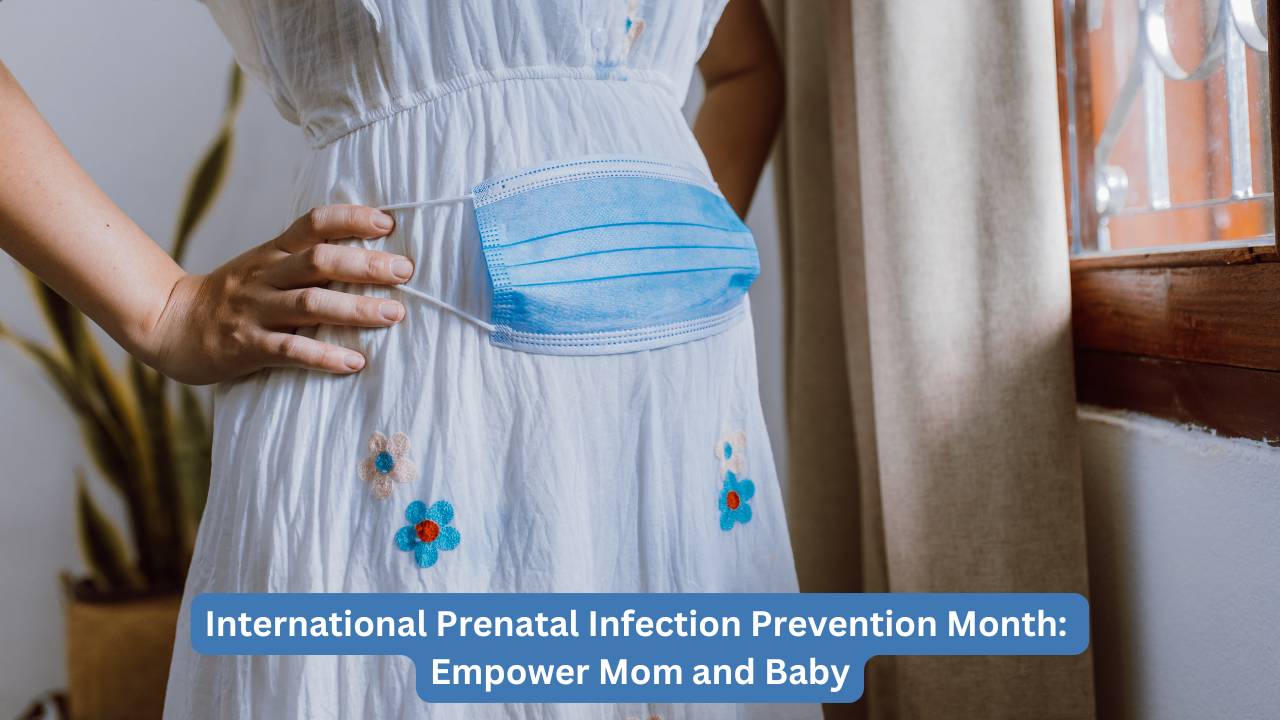International Prenatal Infection Prevention Month: Empower Mom and Baby

February is International Prenatal Infection Prevention Month, a time to raise awareness about preventing infections during pregnancy. Prenatal infections can affect the health of both the mother and the baby, sometimes leading to complications that are avoidable with the right knowledge and preventative measures.
Understanding how to protect yourself and your baby from harmful infections during pregnancy is crucial for ensuring a safe, healthy pregnancy and delivery.
Why Prenatal Infection Prevention Matters
During pregnancy, a mother’s immune system changes to accommodate the growing baby, sometimes making her more susceptible to infections. Prenatal infections can be passed from mother to baby, potentially leading to birth defects, preterm labor, or other serious health issues.
While some infections are common and easy to manage, others can be more severe, especially if contracted during pregnancy. The good news is that awareness, vaccinations, and careful hygiene practices can prevent many prenatal infections.
Common Prenatal Infections
Here are some of the most common infections that can occur during pregnancy and how they may impact the mother and baby:
-
Group B Strep (GBS)
- Group B Streptococcus is a type of bacteria found in the digestive system and genital area. While it is harmless in most adults, it can cause serious infections in newborns if passed during delivery. Pregnant women are usually tested for GBS during the third trimester, and if positive, antibiotics are administered during labor to protect the baby.
-
Toxoplasmosis
- Toxoplasmosis is a parasitic infection often spread through cat feces, contaminated soil, or undercooked meat. If contracted by the mother during pregnancy, it can be dangerous for the baby, leading to vision and brain problems. Pregnant women should avoid handling cat litter and always practice proper food hygiene.
-
Listeria
- Listeria is a bacteria in contaminated food, especially soft cheeses, deli meats, and unpasteurized dairy products. Pregnant women are more susceptible to Listeria infections, which can result in miscarriage, stillbirth, or severe illness in newborns. Avoiding risky foods and practicing proper food safety during pregnancy is essential.
-
Cytomegalovirus (CMV)
- CMV is a common virus that can cause infection during pregnancy and may lead to developmental delays, hearing loss, or other health issues in the baby. CMV is spread through close contact with bodily fluids, so pregnant women should avoid sharing utensils or food with young children and practice good hand hygiene.
-
Rubella (German Measles)
- Rubella is a viral infection that can cause serious birth defects if a woman contracts it during pregnancy. While rubella has become rare due to widespread vaccination, women must ensure they are up to date on their vaccinations before becoming pregnant.
Steps to Prevent Prenatal Infections
Protecting yourself and your baby from infections during pregnancy is an important step toward ensuring a healthy pregnancy. Here are some simple, effective ways to reduce the risk of prenatal infections:
-
Practice Good Hygiene
- Wash your hands frequently, especially after using the bathroom, handling pets, changing diapers, or preparing food. Handwashing is one of the most effective ways to prevent the spread of infections.
-
Be Careful with Food
- Avoid eating raw or undercooked meat, eggs, and fish. Wash all fruits and vegetables thoroughly before eating. Avoid unpasteurized dairy products and deli meats unless they are thoroughly heated.
-
Stay Up-to-Date on Vaccinations
- Ensure you are current on all necessary vaccines before and during pregnancy. Vaccines, like those for influenza and COVID-19, can provide critical protection for both mother and baby during pregnancy.
-
Avoid Contact with Harmful Substances
- Avoid handling cat litter, soil, or animals that may carry infections, like reptiles and rodents. If you need to handle these things, wear gloves and wash your hands immediately afterward.
-
Get Regular Prenatal Care
- Regular check-ups with your healthcare provider will help monitor your health and your baby’s development. Discuss any infection concerns and follow your doctor’s guidance on preventive measures, including necessary screenings and treatments.
A Christian Perspective on Caring for Your Pregnancy
As Christian women, we understand the importance of caring for our bodies and the precious lives we carry. Psalm 139:13-14 (KJV) beautifully reminds us, “For thou hast possessed my reins: thou hast covered me in my mother's womb. I will praise thee; for I am fearfully and wonderfully made: marvellous are thy works; and that my soul knoweth right well.”
Taking the necessary steps to prevent infections during pregnancy is part of being a good steward of the health God has entrusted to us. Caring for our bodies and our unborn children is a form of worship and gratitude for the life and health God provides.
Moving Forward
International Prenatal Infection Prevention Month reminds expectant mothers to take charge of their health and protect their unborn babies. By practicing good hygiene, eating safely, staying up-to-date on vaccinations, and attending regular prenatal care appointments, you are making a powerful investment in your baby's health.
Let this month encourage you to share this important information with other women, empowering them to protect themselves and their babies as well.
Your health and your baby's health is worth the extra care.
Stay connected with news and updates!
Join our mailing list. You can download a free gift and receive the latest news and updates from our team.
Don't worry, your information will not be shared.



